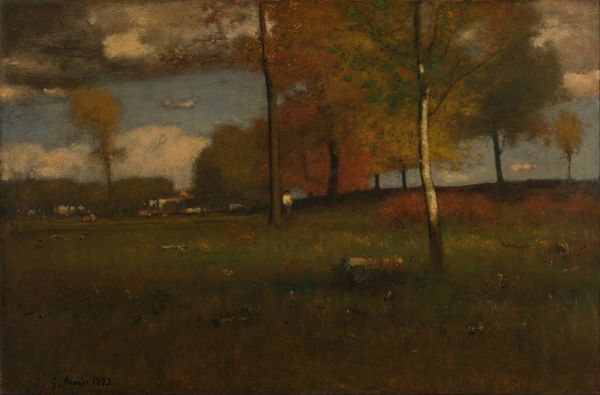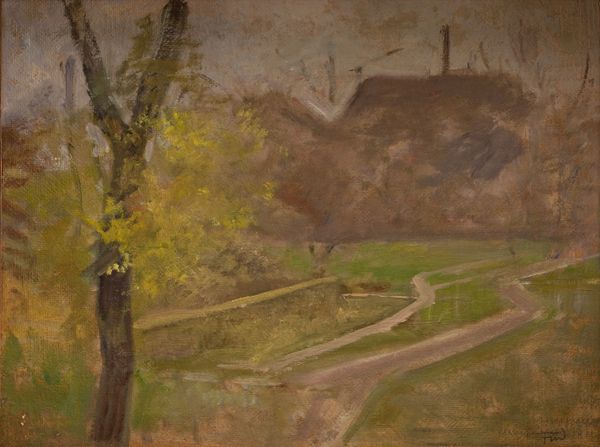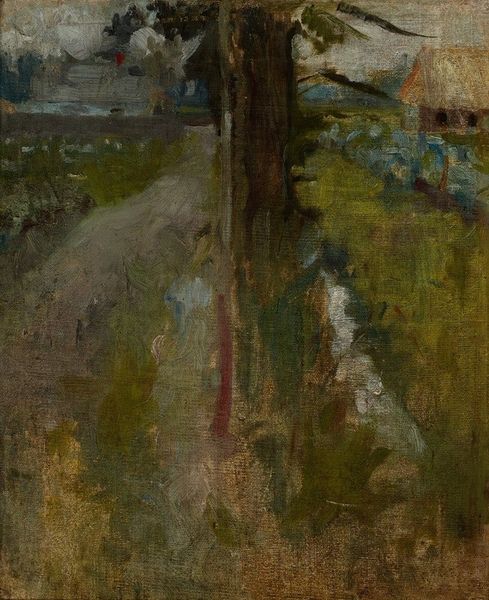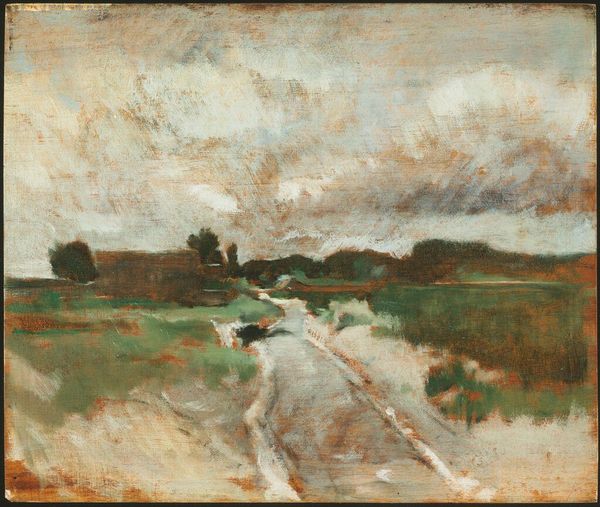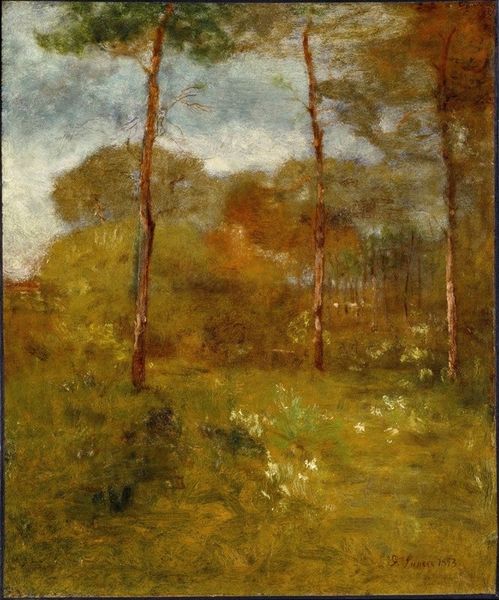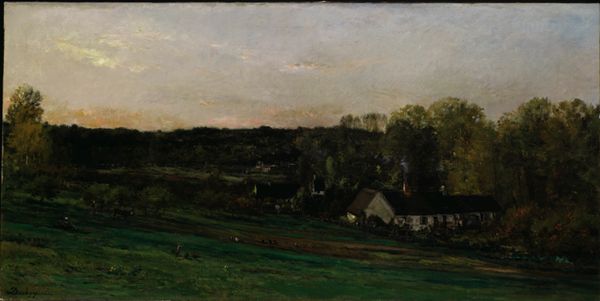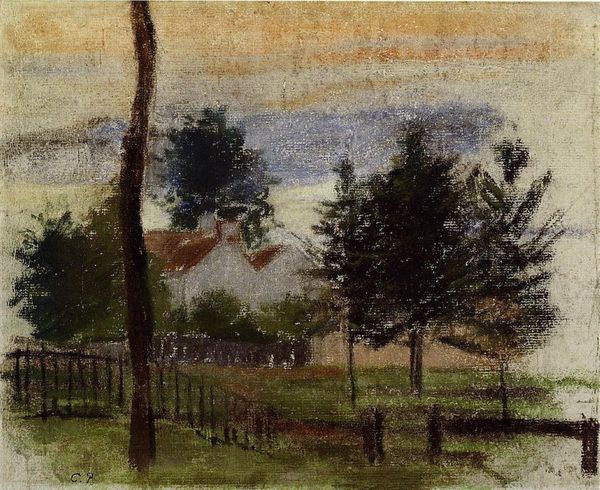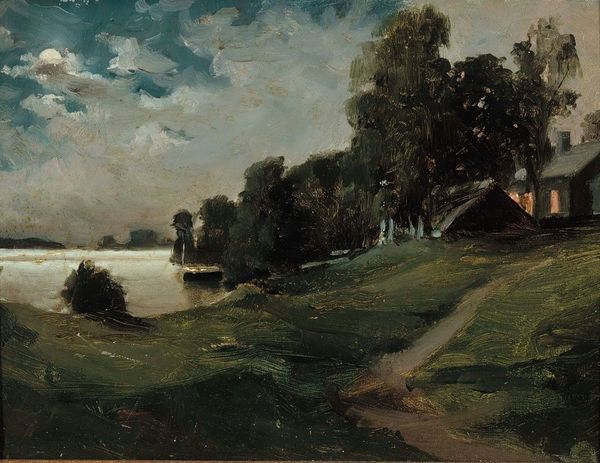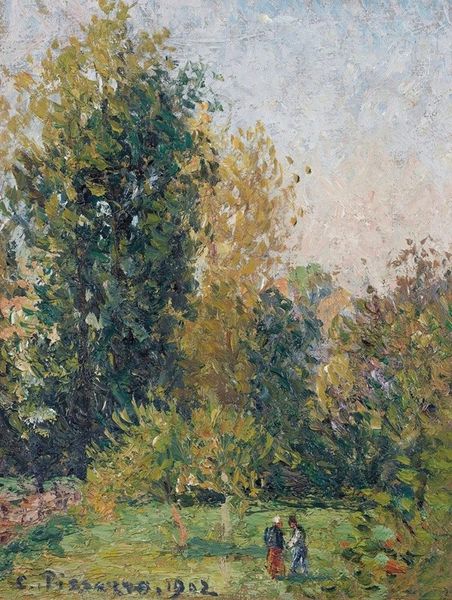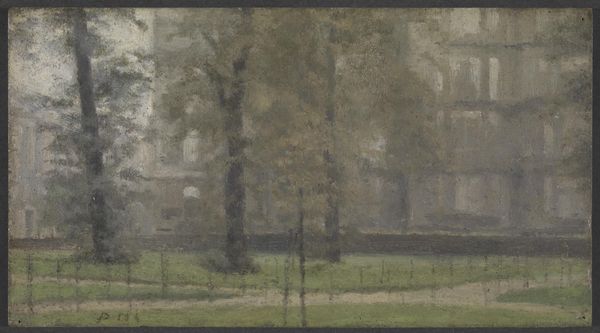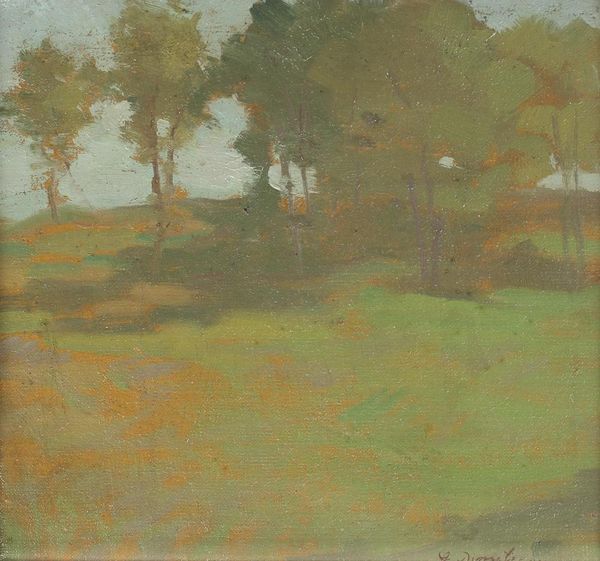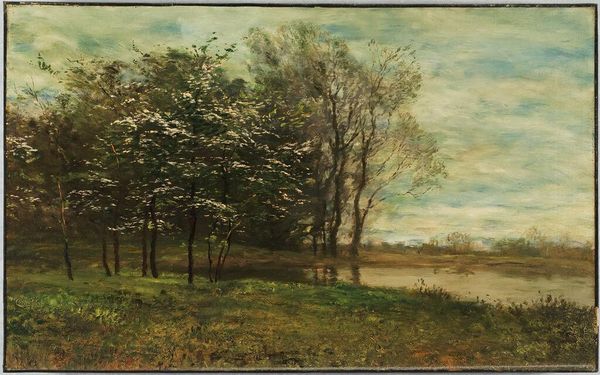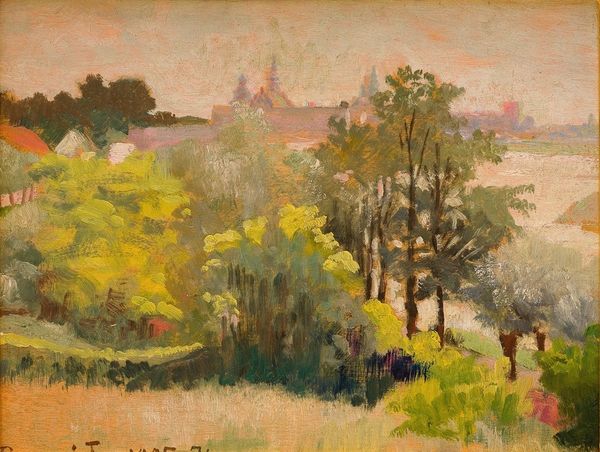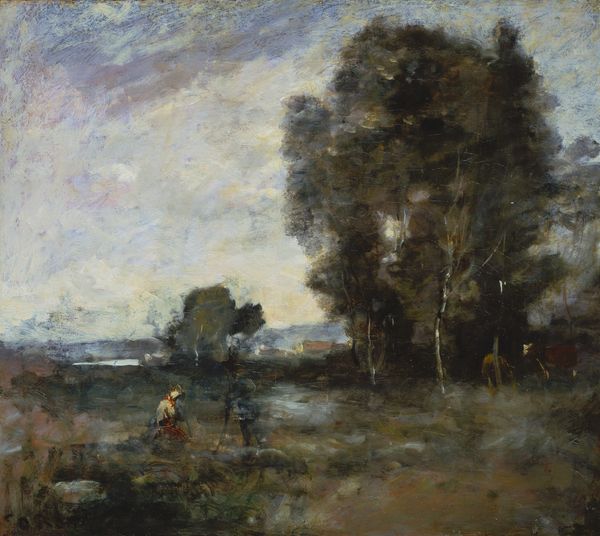
Dimensions: 17 x 30.2 cm
Copyright: Public domain
Editor: This is Willard Metcalf's "Afternoon by the River at Grez," painted in 1884 with oil paint, it’s an idyllic, kind of melancholic landscape. It gives me a feeling of peacefulness mixed with a hint of longing, maybe. What do you see in this piece? Curator: It strikes me how Metcalf is channeling the pastoral tradition, a tradition that carries within it echoes of simpler times, idealized nature, and an escape from the complexities of modern life. It makes me wonder about the cultural memory embedded in landscapes like these – what kind of collective yearning were viewers in 1884, and even now, projecting onto these scenes? Editor: So, it's like the river isn’t just a river but a symbol? Curator: Precisely. Water, often depicted in art, holds profound symbolic weight – representing the subconscious, the flow of time, purification, and even the boundary between life and death. In this context, think about how the reflection upon the water, a doubling effect, reinforces the idea of looking inward, seeking a deeper understanding of self and the world. Do you feel a psychological element at play? Editor: Definitely! It’s almost dreamlike. The indistinct details… they do suggest the subconscious. It makes me wonder if he’s representing memory itself, how it's clear in some places, and murky in others. Curator: An insightful observation. Memory is cultural as much as it is personal. Perhaps the artist is telling us how culture creates and preserves those landscapes for posterity. Editor: I hadn't considered that before. Thinking about this piece in terms of collective cultural memory, really enriches it. Thank you. Curator: It was my pleasure. Thinking about how symbols persist across time offers us a richer experience.
Comments
No comments
Be the first to comment and join the conversation on the ultimate creative platform.
